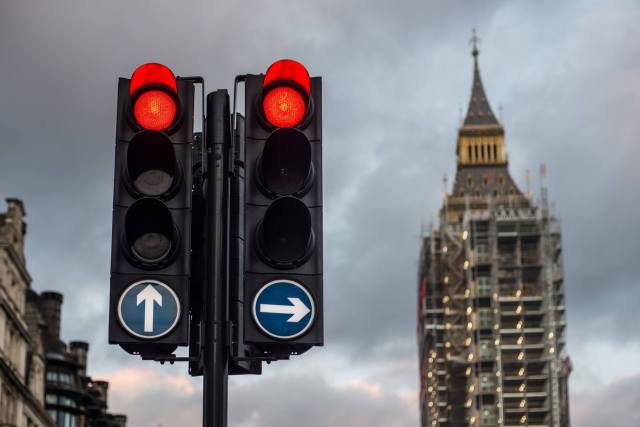Credit: Getty

Long before the alt-right there was something very different – the New Right. It began as a reaction against the triumphant statism of the post-war era; gathered intellectual momentum in the 1960s and 70s; and culminated in the Reagan and Thatcher revolutions of the 1980s.
After that came an era of compromise – not least with the continuing dependency of every developed democratic nation on a large-scale, redistributive state.
Nevertheless, some New Right old believers still cling-on to ancient certainties. For instance, in an article about transport policy for ConservativeHome, John Redwood opens up with the most New Right thing anyone has ever said about anything:
“Traffic lights are so un-Conservative. They are part of the top-down, government knows best model of bossing us about.”
Those three-eyed totalitarian monsters! How dare they tell us not to proceed into the path of an on-coming stream of traffic!
I would argue that traffic lights are not just conservative, but symbolic of conservatism. Indeed, they enact the quintessentially conservative balance between freedom and order.
Even more importantly, they are reflective of the dignity of the individual. They enable a frail old lady to stop a ten ton truck at a road crossing – because her right to do so does not depend on her physical strength or her economic value, but on her infinite worth as a human being. (I wonder if Ayn Rand ever contemplated the meaning of the traffic light).
If anything is “un-conservative” it’s not traffic lights, but traffic. As I’ve written about before, cars, while greatly enhancing the freedom of some individuals, are also deeply destructive of community. It’s no wonder that the Amish, one of the few groups in society that consciously think through the impact of technology on their lives, reject the car.
The rest of us just have traffic lights, and the freedom they give us to momentarily reclaim the streets. That, however, could be about to change in a major way.
If, like John Redwood, you see traffic lights as a tool of statist control, then just you wait for the era of the driverless car! The term ‘autonomous vehicle’ may turn out to be deeply misleading – because any technology capable of allowing a car to do without a (human) driver would allow such vehicles to be networked and remotely controlled by the authorities.
Writing for The Conversation, Neil McBride is alarmed:
“For more than 130 years, cars have represented the ultimate in autonomy, individuality and democratic freedom. Our car trips are private and anonymous. We can go where we like and when we like. We don’t have to tell anybody. And we retain responsibility for whether we obey the law. Driverless cars will bring that to an end.”
It’s not just the individual vehicle that will be automated, but the overall pattern of traffic flows across an entire road network:
“Smart motorways will manage flows of traffic, slowing down driverless cars as part of a stream of communication between the car and the road. In smart cities, traffic lights will reroute cars into detours according to calculations and predictions about traffic jams, road works, or state requirements.”
McBride sees the potential for oppression – and it would be foolish to deny the danger:
“In the dictatorial state, the authorities can stop you going to a demonstration, or stop you going to church.”
However, there’s also the potential for liberation. The new technology doesn’t have to result in greater centralisation. Indeed, it could allow the radical localisation of traffic management, with the residents of each neighbourhood reaching their own judgements as to the balance between mobility and other claims on shared spaces.
Subject to the whims and (in)competence of the motorist, we’ve lived our whole lives in terror of the motorised vehicle, teaching that fear to little children as if things could be no other way.
Now, as computers begin to take the wheel, new possibilities present themselves – new choices and, therefore, new freedoms.










Join the discussion
Join like minded readers that support our journalism by becoming a paid subscriber
To join the discussion in the comments, become a paid subscriber.
Join like minded readers that support our journalism, read unlimited articles and enjoy other subscriber-only benefits.
Subscribe